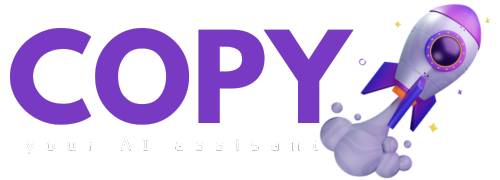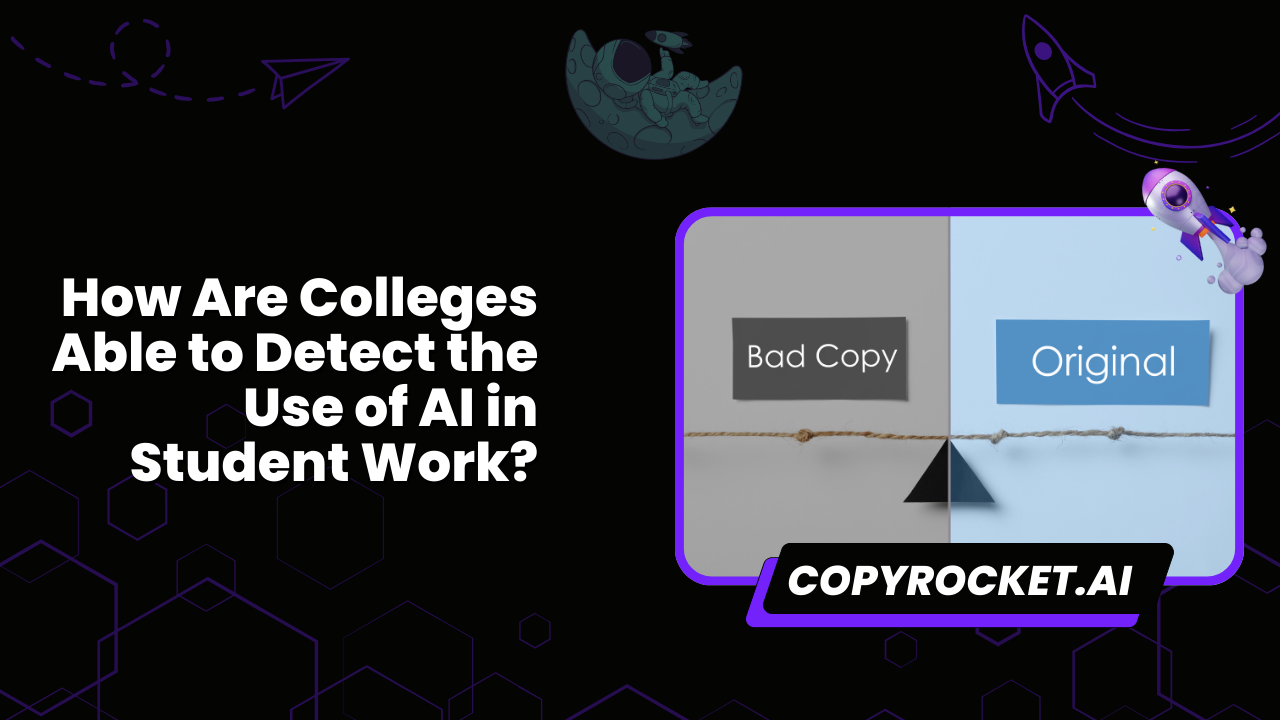The rise of AI tools like ChatGPT, Claude, and other advanced AI language models has transformed how students approach their writing assignments and college application essays.
However, with the growing use of AI-generated content and AI writing, colleges are increasingly turning to detection tools to identify potential AI written text.
By analyzing writing style, sentence structure, and other linguistic features, these AI detection systems aim to maintain academic integrity and ensure a fair admissions process.
Admissions officers and faculty members now use this technology to spot red flags in essays, personal statements, and initial drafts, as they work to determine whether the content reflects the true selves and unique perspectives of prospective students.
The Problem
The rise in the use of AI tools in education has created significant challenges for colleges and universities. Students increasingly rely on AI-generated content, which makes it more difficult for institutions to distinguish between human-written and AI-generated writing.
This reliance raises concerns about academic integrity, fairness, and the effectiveness of traditional evaluation methods in distinguishing between AI-generated and human writing. Colleges now face the task of integrating detection tools to identify the use of AI-generated text while maintaining a fair and balanced approach in their assessments.
Examples of Rising Challenges:
- AI Cheating Is Getting Worse: The Atlantic highlights issues at colleges like Arizona State University, where generative AI has disrupted honor codes, forcing faculty to reevaluate assessment strategies. This underscores the need for effective AI detection systems.
Fairness vs. Integrity: An article from The Courier Mail reveals how nursing students at the University of Southern Queensland are subjected to lengthy investigations for potential AI-assisted plagiarism. These cases highlight concerns about the fairness of accusations and the delays it causes in students’ academic progress.
ChatGPT Has Become the ‘Best Teammate’: The Guardian discusses how Sydney University students use AI tools like ChatGPT to brainstorm and gather feedback, sparking debates between innovative learning and academic integrity. This example illustrates the blurred lines between support tools and the potential misuse of AI technologies.
Most Campus Tech Leaders Say Higher Ed Is Unprepared for AI’s Rise: Inside Higher Ed reports that a majority of campus CTOs feel unprepared for the surge of AI use, with 86% of students admitting to incorporating AI tools into their studies. This includes challenges in scaling AI detection software and refining detection processes.
With AI models becoming increasingly accessible and sophisticated, colleges aim to use detection tools that analyze writing style, sentence structure, and other linguistic features to identify AI-generated writing. These challenges are particularly evident in the context of college essays, where the authenticity of student submissions is crucial.
This step is essential to ensure fairness in the admissions process, uphold academic integrity, and avoid giving students an unfair advantage.
Despite advancements in AI detection software, challenges like false positives and maintaining the personal touch in evaluating college applications persist.
Faculty members and admissions officers must balance the benefits of technology with its potential drawbacks to foster a reliable and ethical academic environment.
AI Detection Used by Colleges and Universities for Research
Colleges and universities are leveraging advanced AI detection tools to identify potential AI-generated content within student writing assignments, college application essays, and other academic materials.
These tools ensure that academic integrity is maintained while helping college admissions officers identify whether submissions are truly reflective of the students’ unique perspectives and writing styles. Below is a roundup of prominent AI detection tools in use, along with their features:
CopyRocket AI’s AI Plagiarism and AI Content Detector
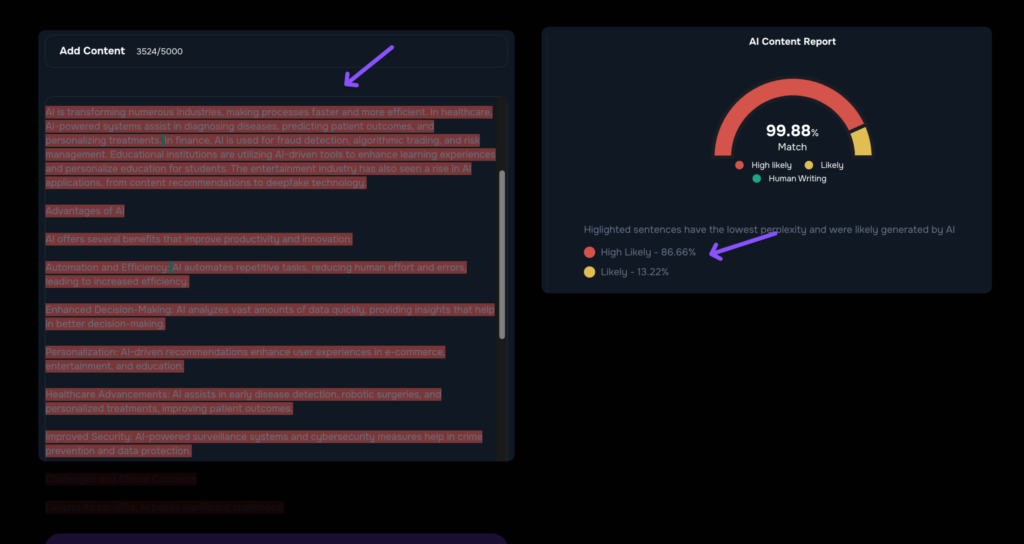
CopyRocket AI offers a comprehensive tool to detect AI-generated text within academic and professional contexts. More details are available on our platform here.
Detects both plagiarism and AI-generated text with advanced algorithms.
Analyzes writing style and linguistic patterns for accurate results.
Designed to support educators, admissions officers, and researchers with reliable AI detection capabilities.
Focuses on identifying red flags in students’ writing, including sentence structure and unnatural phrasing.
CopyRocket AI is particularly effective in analyzing college essays to ensure they are free from AI-generated content.
Turnitin
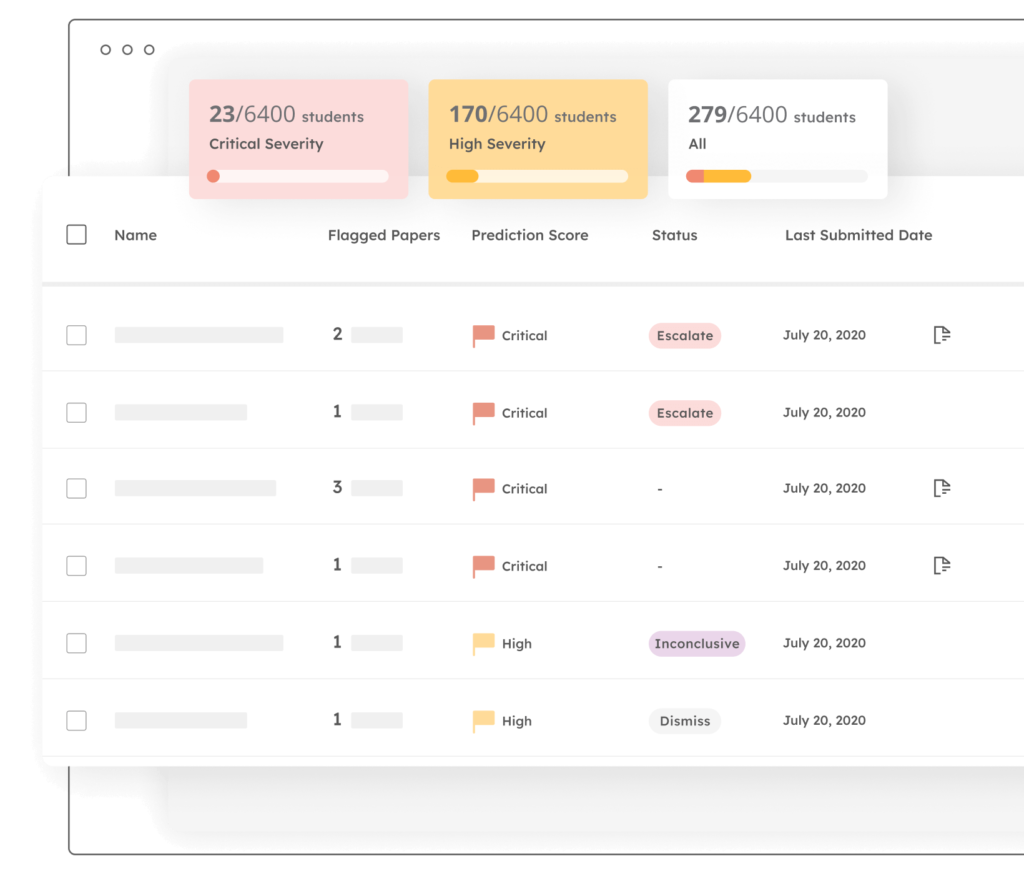
Turnitin, widely regarded as the industry standard for plagiarism detection, includes a robust AI detection feature that has drawn significant attention from researchers in higher education.
Effective in distinguishing between human-written and AI-generated text.
Combines traditional plagiarism checks with state-of-the-art AI content detection.
Trusted by colleges and college admissions officers to ensure fairness in the admissions process.
Noted for its ability to detect potential AI-generated text in application materials and essays.
GPTZero

GPTZero has been highlighted in several studies, including The RAID Study, for its effectiveness in identifying AI-written essays and academic writing.
Originally developed to differentiate between ChatGPT and human-written content.
Achieved a 63.77% accuracy rate on the AH&AITD database in empirical testing.
Useful for faculty members aiming to detect AI use in students’ work.
Provides insights into writing style, sentence structure, and potential machine learning patterns.
GPTZero is particularly useful for analyzing college essays to detect AI-generated content.
ZeroGPT
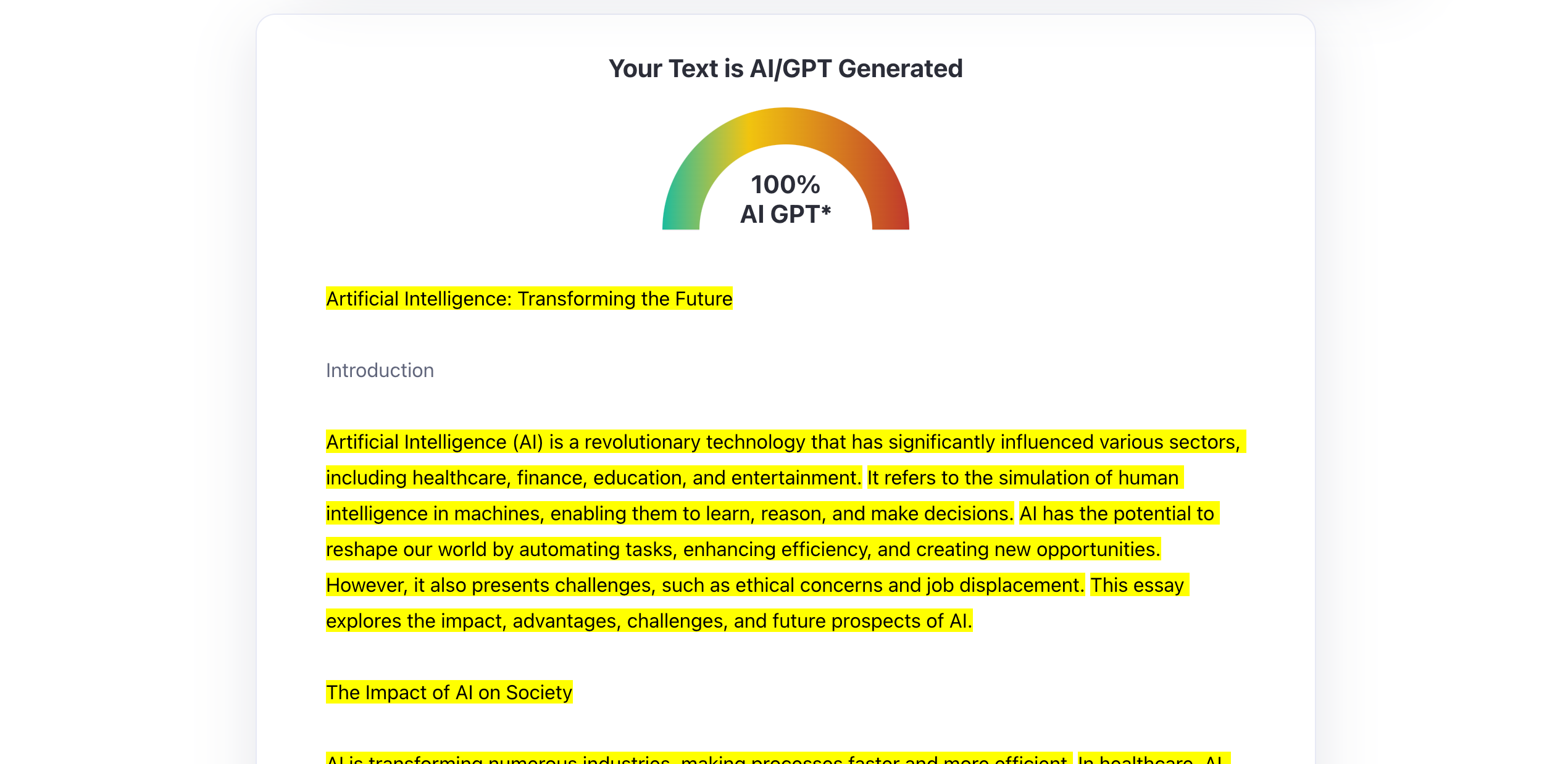
ZeroGPT, distinct from GPTZero, is another AI detector frequently used in academic research to detect AI-generated writing.
Claims an accuracy rate of 98%, supported by its DeepAnalyse Technology.
Effective in identifying AI paraphrasing and rephrased content in application materials.
Frequently applied in research studies assessing AI tools’ detection capabilities and used by college admissions officers.
Evaluates potential AI use across disciplines, including medical and academic writing.
Copyleaks
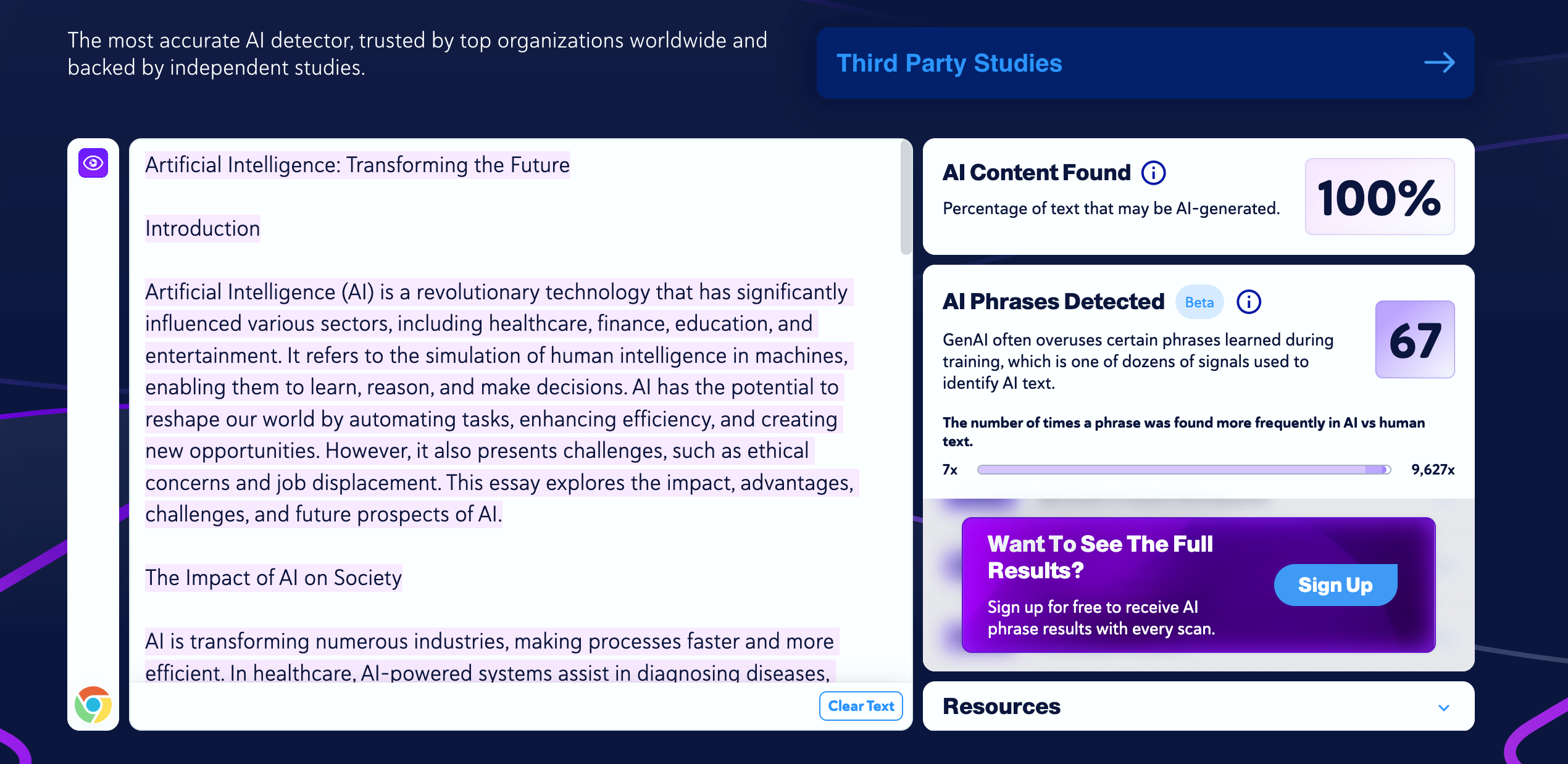
Copyleaks is a popular option for academic institutions seeking to detect AI-generated content in both assignments and research documents.
Analyzes natural language processing patterns to detect AI-generated text.
Provides real-time AI detection results to support college admissions officers.
Used in multidisciplinary studies to determine the effectiveness of various AI detection tools.
Focuses on maintaining academic integrity and ensuring fairness in evaluation processes.
These tools utilize advanced natural language processing and machine learning models to detect AI-written content.
They play a crucial role in ensuring fairness in the admissions process while helping colleges identify true student perspectives and maintain the personal touch in evaluating application essays and other materials.
Does These AI Content Detectors Actually Work? Lets see the rise of Fake Allegation
With the increasing reliance on AI detection tools in academic settings, questions surrounding their accuracy and reliability have grown. False positives are becoming a concern, as students report being wrongly accused of submitting AI-generated content when they have actually produced human writing, raising significant issues about academic integrity and how colleges handle these situations.
A Study of College Students Accused of Using ChatGPT
A new study investigated the reactions of college students accused of cheating with ChatGPT by analyzing 49 Reddit posts. Of these posts, 38 students stated they did not use AI to generate their assignments. Despite this, detection programs like Turnitin or GPTZero flagged their work as AI-generated content.
This finding has raised concerns about the reliability of AI detection software and how colleges are able to detect the use of AI without unintentionally accusing students who produce human-written work. Such incidents highlight the impact on the academic experience and the need to maintain fairness in evaluation processes.
Reddit Users Share Their Frustrations
The amount of time I spend refining my writing in college to not get flagged by AI when I wrote ALL OF IT is insane.
byu/Sad_Individual_8645 inChatGPT
Complaints about AI detectors are widely discussed on platforms like Reddit. For example, one user, Sad_Individual_8645, shared, “The amount of time I spend refining my writing in college to not get flagged by AI when I wrote ALL OF IT is insane.” Users often express frustration with detection tools mistaking their carefully crafted writing for AI-generated text. These incidents not only add stress to the writing process but also question whether AI detectors are fair tools for evaluating essays and writing assignments.
Falsely Accused of an AI-Written Essay
falsely accused of ai written essay, what should i do?
byu/Bobertsmith1928 incollege
Another user, Bobertsmith1928, posted their experience on Reddit, asking, “What should I do?” after being falsely accused of submitting an AI-written essay. Situations like these demonstrate how personal statements and application essays can sometimes fall victim to inaccuracies in detection results. This underscores the need for colleges and faculty members to carefully analyze flagged work to avoid unfairly penalizing students for AI-related false positives.
A University Disables Turnitin’s AI Detector
Vanderbilt University recently announced its decision to disable Turnitin’s AI detector, citing concerns about the accuracy of detecting AI-generated writing. The university expressed hesitations about potential AI detection programs inadvertently flagging human-written materials, leading to doubts around their reliability. Such moves by institutions reflect broader questions on how the use of AI detection software will shape the future of college admissions and assignment evaluations. This step also reinforces the importance of preserving trust and unique perspectives in the admissions process.
These incidents collectively highlight the challenges of relying on AI detectors to maintain academic integrity. False accusations of using AI tools can damage trust between students and institutions, impacting prospective students who strive to present their true selves.
Colleges must consider whether their detection tools are reliable enough to truly identify AI-generated text without disadvantaging human-written work. Balancing advanced technologies like natural language processing and machine learning against the risks of false positives will remain a central issue for colleges, admissions officers, and faculty as they refine their evaluation processes.
What to do AFTER you are falsely accused of using AI at college?
What to do AFTER you are falsely accused of using AI at college/university
byu/bugsinmylipgloss inChatGPT
Navigating a false accusation of using AI in academic work can be an overwhelming experience, especially when institutional resources and processes seem unclear or inadequate. It’s essential to remain calm, gather evidence, and advocate for yourself methodically. Below is advice shared by a Reddit user, u/bugsinmylipgloss, along with an explanation of its potential effectiveness.
1. Recover Version History
Use tools like Google Docs or Word to show your document’s edits over time, creating a clear trail of your work process.
2. Share Browser History
Consider sharing search history to prove legitimate research efforts, though be mindful of privacy concerns.
3. Test AI Detector Accuracy
Run AI detection tools on your older work or the accuser’s papers to highlight potential inaccuracies in the software.
4. Request Evidence
Ask faculty for specific proof that AI was used. Copy advisors or department heads to ensure fairness and accountability.
5. Review Policies
Check your school’s academic misconduct and appeals policies for guidance on addressing accusations.
6. Document Everything
Record all meetings (if allowed) and keep detailed notes of interactions to ensure accountability and transparency.
7. Question Detection Software
Request information on the detection tool’s accuracy and false positive rates to challenge its reliability.
Follow these steps to build a strong, professional defense and advocate for fair treatment.
Final Thoughts!
Colleges are increasingly leveraging advanced detection tools to identify potential AI-generated content in writing assignments and application essays. AI detection software, which relies on natural language processing and machine learning, examines elements like sentence structure and writing style to determine if text was AI-generated. By doing so, colleges aim to maintain academic integrity while ensuring prospective students showcase their true selves and unique perspectives in application materials. This ensures that admissions officers can fairly evaluate personal statements and initial drafts without concerns about the use of AI tools providing an unfair advantage.
